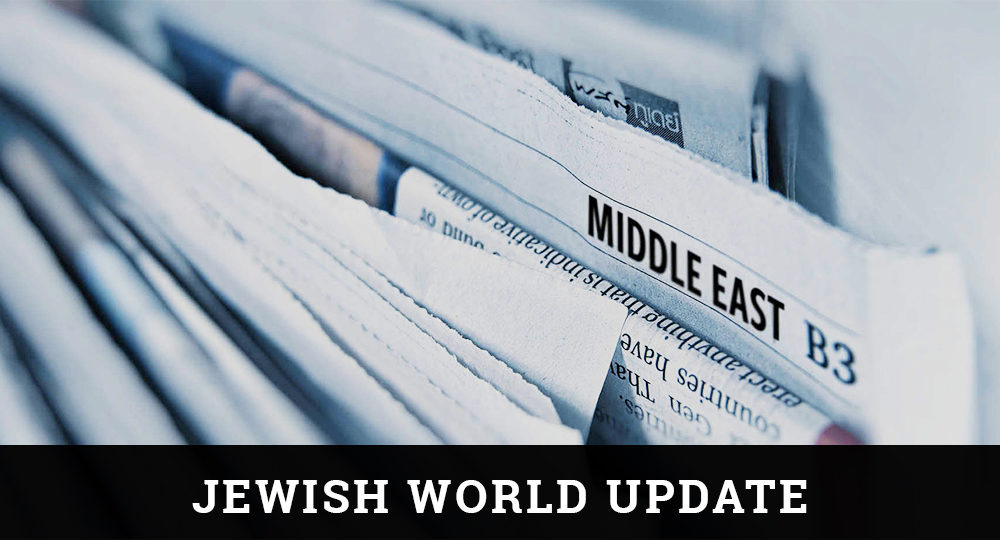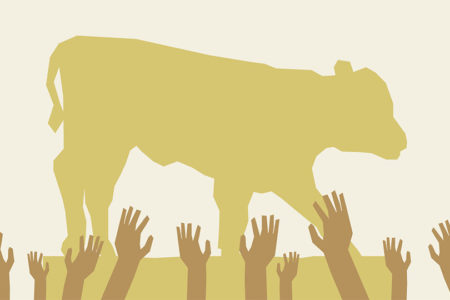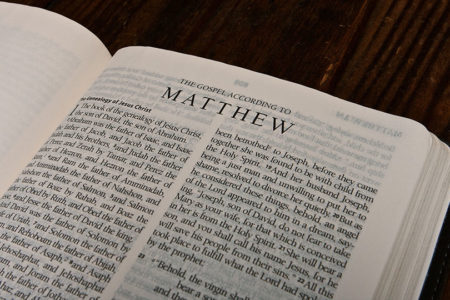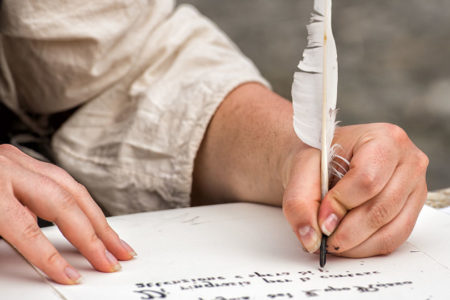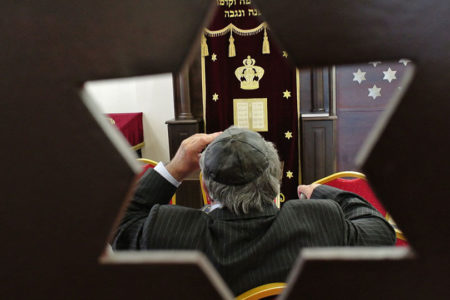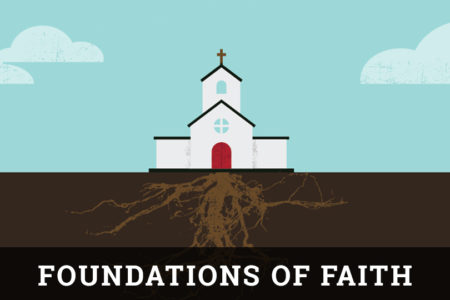Israel in the News Dec/Jan 1995/1996
Israel buries Rabin
(from USA Today)
Slain Israeli Prime Minister Yitzhak Rabin was buried (November 6), with President Clinton among world leaders who gathered amid extraordinary security.
Rabin, 73, was shot (November 4) at a peace rally in Tel Aviv; a right-wing Jewish extremist is in custody. The assassination, the first of an Israeli political leader, has added to the nation’s divisions.
Interior Minister Ehud Barak said the government must act against “extremist groups capable of using violence.”
“These things should have been stopped when placards were hoisted terming Rabin a traitor,” said Barak.
The power of words was also on Clinton’s mind as he traveled to Israel. “Words can have consequences … Democracy only works when freedom is handled responsibly,” he told reporters.
Police said up to 1 million people [filed] past Rabin’s coffin before the funeral.
The effect of Rabin’s death on the peace process he spearheaded is uncertain.
Acting Prime Minister Shimon Peres said “worry is eating my heart,” but pledged to push forward.
Benjamin Netanyahu, leader of the Likud Party, has been critical of the peace process. But on CBS’ 60 Minutes, he told extremist Jewish groups in the USA—some of whom had called Rabin a traitor—to stay away: “We don’t need you.”
Police said gunman, law student Yigal Amir, 27, planned twice to kill Rabin. Amir reportedly said his actions were based on rabbinical rulings that permit Jews to kill people who give away parts of the biblical land of Israel.
In Lebanon and Iran, militants opposed to peace celebrated Rabin’s death.
Palestine Liberation Organization chairman Yasser Arafat, who said he was “very sad and shocked” at Rabin’s murder, [did] not attend the funeral.
Jordan’s King Hussein and Egyptian President Hosni Mubarak [attended]. Both, whose nations have peace treaties with Israel, [made] their first official visits to the disputed city of Jerusalem.
Arafat adviser: Jerusalem was always an Arab city
On the eve of the celebration of 3,000 years since King David made Jerusalem his capital, Yasser Arafat’s senior religious adviser announced that Jerusalem has always been an Arab city.
“Jerusalem has been an Arab city throughout history,” Abdel Salam Abu Shuheide, deputy director of the Palestinian Authority’s Wakf, told an interreligious gathering in Jerusalem.
Shuheide also related to the definition of jihad, a term used by Arafat. Jihad, Shuheide said, is the supreme effort of purification for the sake of God. It does not mean the use of force, he said, but added that when there is opposition to jihad, force is permissible.
What a blind Jewish grandmother most wants to see
“I want to see my grandchildren and my great-granddaughter!”
That was Menua Sternberg’s first request after her sight was restored recently.
The 83-year-old immigrant from Ukraine arrived last spring and settled in Haifa with her daughter and two grandchildren. She lost her sight nine years ago due to cataracts, but doctors in Ukraine refused to operate on her, citing her advanced age and a stroke she had suffered.
But after examining her at Haifa’s Rambam hospital, Prof. Benny Miller decided she was a candidate for surgery and operated on both eyes.
“It’s difficult to explain” the feeling of seeing family for the first time, Sternberg said. “I want to thank the doctors and the State of Israel, that returned to me a good life.”
Germany may shift aid from Israel to PA
Germany is considering canceling its annual foreign aid to Israel and transferring it to the Palestinians, a senior government official told The Jerusalem Post last week.
Germany provides Israel with annual assistance of 140 million marks, or NIS 303 million ($100m.). Senior German officials have recommended that the funds be transferred to the Palestinians based on the technical budget item from which they originate. The money comes from the budget provision for assistance for developing countries.
German officials argue that Israel is no longer a developing country and therefore the fund should go to help the Palestinian Authority.
Decades away from revival
The flames that swallowed forest and field, villages and plantations in the Jerusalem hills recently had barely died down. But an army of accountants and assessors were already busy trying to figure out the cost of the disaster.
Some of the costs are simple to calculate. We know the cost of building a house, a chicken run, a team. We know the price of new orchards and the loss of several years’ income from those that were destroyed.
In addition to these costs is the fact that this was an ecological disaster of unprecedented scope for Israel. Not even the 1989 forest fire that destroyed much of the Carmel can touch it by comparison.
No traveler to Jerusalem will be able to miss seeing the damage. No longer wafted up the wadi on waves of cloudy green, all he will see for a long time will be the wasteland the flames left behind, the scorched earth, the jagged tree stumps standing like a snaggletoothed mess against the sky.
Some of the oldest and largest almond, oak, carob, olive and arbutus trees in the Jerusalem hills are gone, as are the gigantic pine, cypress and fir trees planted by the British in this veteran forest of the hill country.
Other damage is less visible, though indeed tangible. Without this belt of living green, air pollution along the approach road to Jerusalem, one of Israel’s busiest highways, will increase drastically.
The blaze constituted an enormous loss for every person in Israel and nature lovers everywhere. All an individual can do to help is to plant trees … by supporting the Jewish National Fund and the Society for the Protection of Nature in Israel.
(All other articles are taken from The Jerusalem Post.)
